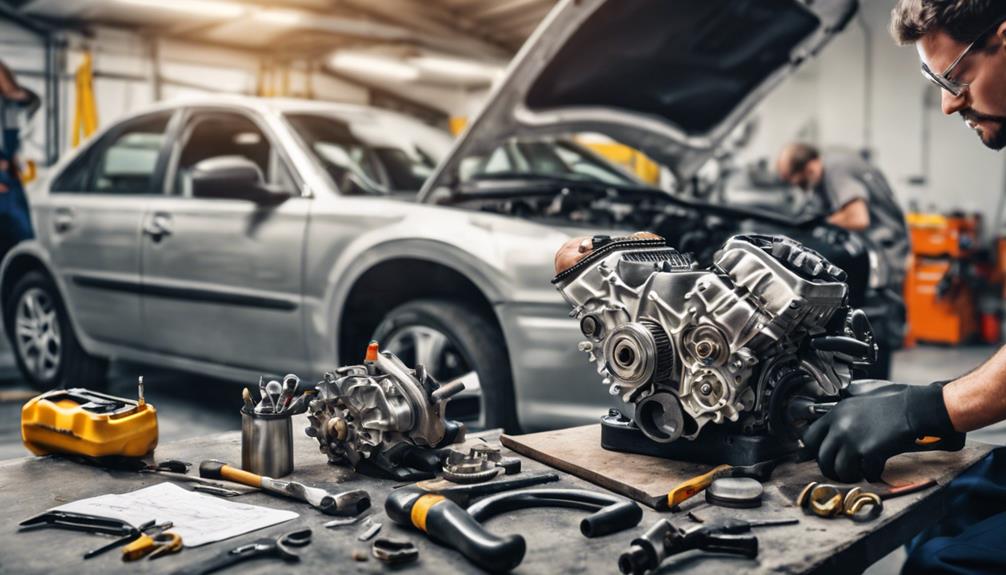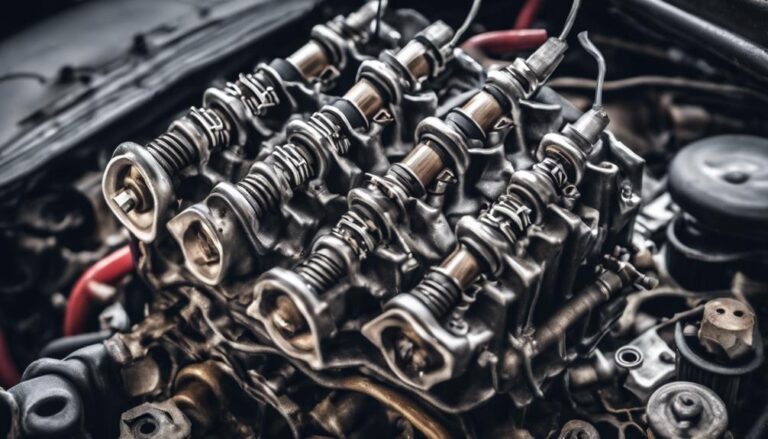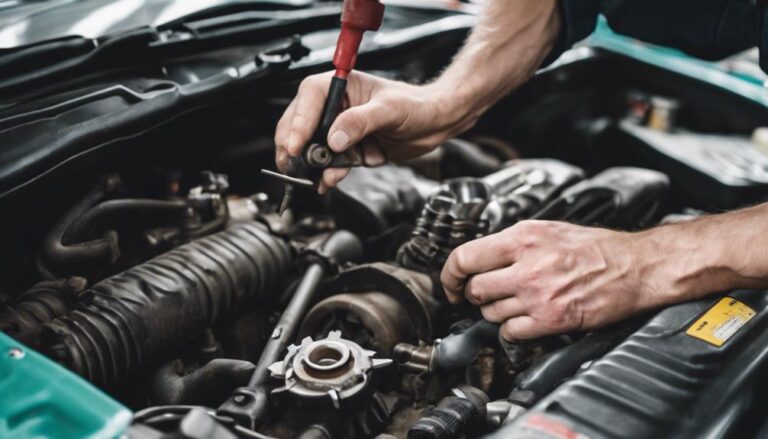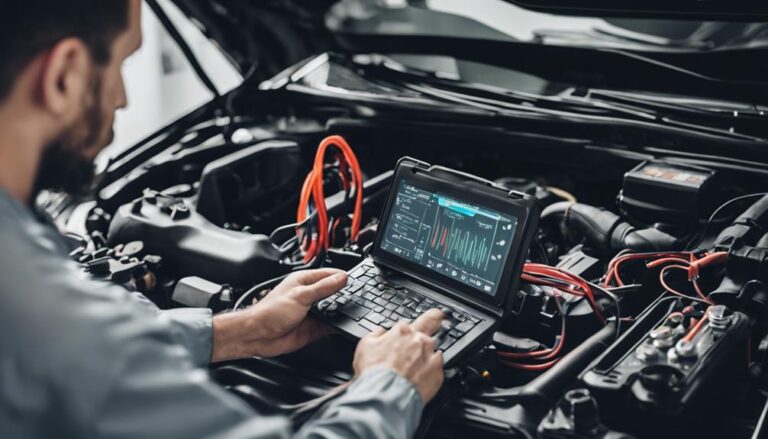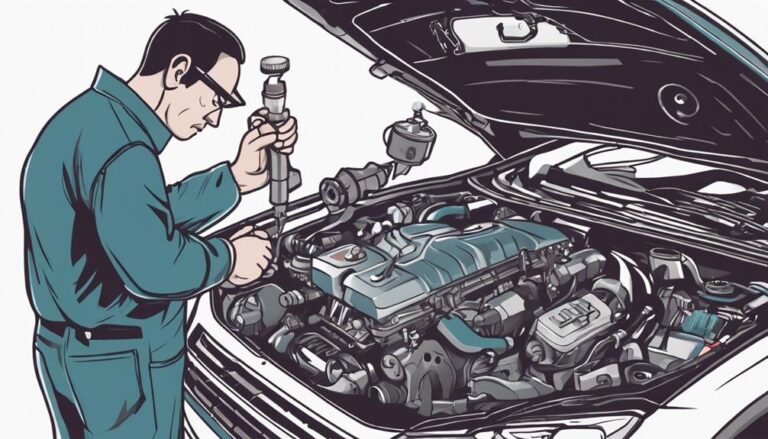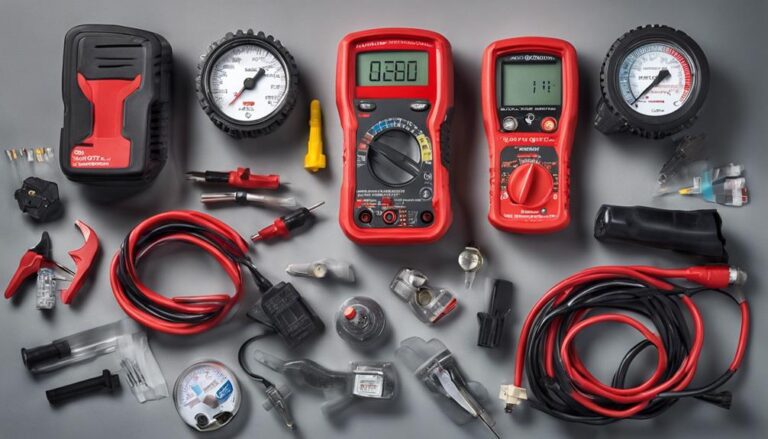What Are Average Engine Repair Costs for Drivers?
Ever wondered about the average engine repair costs for drivers? It's a common concern that can impact your finances more than you might anticipate.
From minor fixes to major overhauls, the price range can vary significantly. But what factors actually determine how much you'll end up paying for engine repairs?
Stay tuned to uncover the secrets behind estimating and managing these costs effectively.
Key Takeaways
- Engine repair costs range from $300 to $4,000, influenced by factors like repair complexity and component replacements.
- Regular maintenance and prompt addressing of minor issues can help reduce overall engine repair expenses.
- Diagnostic expenses range from $100 to $200 and are crucial for accurate issue identification, preventing further damage.
- Understanding warranty options, including extended coverage for older vehicles, can provide financial security for engine repairs.
Average Engine Repair Cost Estimates
When estimating average engine repair costs, it's crucial to consider the varying factors that contribute to the overall expense, ranging from $300 to $4,000 depending on the specific repair requirements.
The breakdown of repair costs includes minor fixes like a loose fuel cap costing around $25 and major repairs such as replacing a catalytic converter exceeding $1,000. Components like oxygen sensors ($242), ignition coils and spark plugs ($392), and mass airflow sensors ($303) also impact the total costs.
To save on repair expenses, consider regular maintenance to prevent costly breakdowns. When facing engine issues, address them promptly to avoid further damage that could lead to higher repair bills in the future.
Factors Affecting Engine Repair Costs
Factors impacting engine repair costs can vary significantly based on the choice between new and used engines. When deciding between the two, consider the age of the engine, as this can affect the overall cost. Generally, new engines are more expensive upfront but may require less maintenance over time compared to used engines, which could lead to higher repair costs in the long run due to wear and tear.
Additionally, repair complexity factors play a crucial role in determining engine repair expenses. The more intricate the repair needed, the higher the costs are likely to be. This complexity can stem from the type of vehicle you own and the specific issue your engine is facing. Understanding these factors can help you anticipate and budget for potential repair costs more effectively.
| Factor | Impact on Repair Costs |
|---|---|
| Engine Age | May affect overall cost |
| Repair Complexity | Higher complexity, higher costs |
Common Engine Diagnostic Expenses
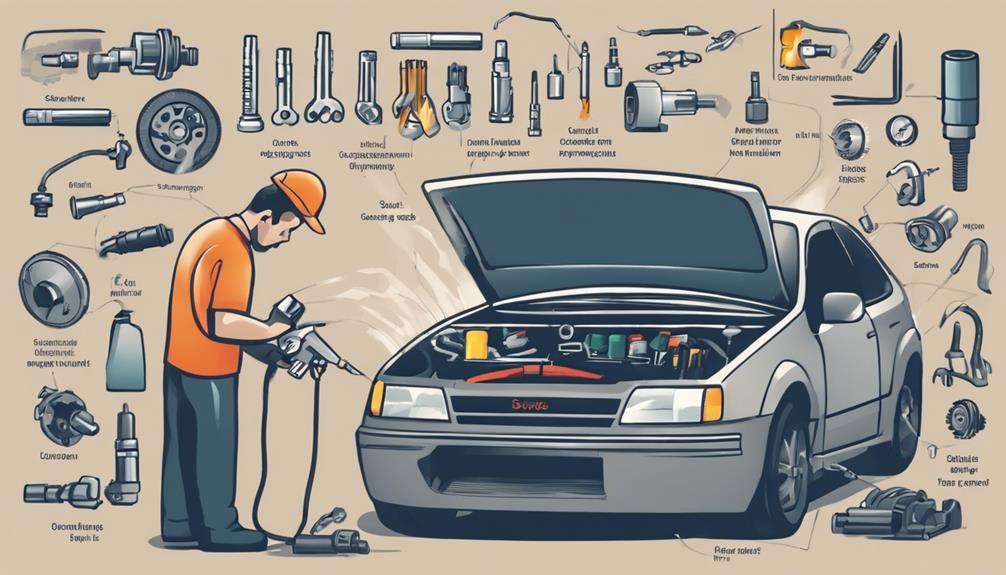
Considering the impact of repair complexity and engine age on costs, let's now focus on the common engine diagnostic expenses that drivers encounter in maintaining their vehicles.
When it comes to diagnosing engine issues, the average cost ranges from $100 to $200. These expenses encompass various elements such as labor rates, parts replacement costs, and fees for employing specialized diagnostic tools. Professional engine diagnostics play a crucial role in pinpointing the root cause of problems accurately and efficiently.
The overall diagnostic expenditure can fluctuate depending on factors like the repair shop's hourly rates, geographical location, and the type of diagnostic tools utilized. Investing in comprehensive engine diagnostics is essential as it can prevent further damage and potentially lead to cost savings in the long term by promptly addressing any underlying issues.
Ways to Reduce Engine Repair Expenses
To effectively reduce engine repair expenses, prioritize regular maintenance practices such as oil changes and filter replacements. Maintenance tips like these are crucial for preventing costly repairs. Following the manufacturer's recommended maintenance schedule is a cost-saving strategy that can help avoid major engine issues. Addressing minor engine problems promptly is another smart move, as this can prevent them from escalating into more expensive repairs down the line. Investing in quality fuel and additives isn't only good for your engine's health but can also potentially lower repair costs by keeping everything running smoothly.
In addition to these maintenance tips, considering extended warranties or service plans can provide coverage for unexpected engine repair expenses, offering you peace of mind and financial protection. By incorporating these cost-saving strategies into your engine maintenance routine, you can significantly reduce the likelihood of facing high repair bills, ensuring your engine stays in top condition while keeping your wallet happy.
Understanding Engine Repair Warranty Options
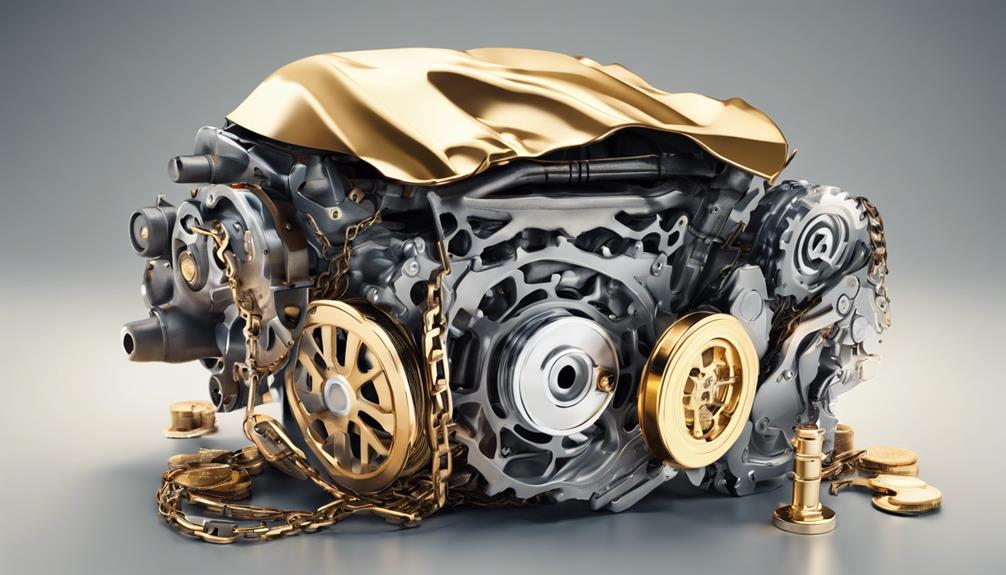
Understanding engine repair warranty options is crucial for drivers looking to protect themselves from unexpected repair expenses. When considering warranty coverage, keep the following key points in mind:
- Warranty Coverage Benefits: Most bumper-to-bumper and powertrain warranties cover engine repairs, potentially including the entire cost of engine replacement. Understanding these benefits can help you assess the level of protection your vehicle needs.
- Importance of Routine Maintenance: Factory warranties often exclude damage from misuse or neglect, emphasizing the importance of routine maintenance for warranty approval. Regularly servicing your vehicle can't only extend the life of your engine but also ensure warranty coverage when needed.
- Extended Warranty Advantage: Extended auto warranties can be advantageous for older vehicles, offering coverage for engine repairs beyond the manufacturer's warranty period. Exploring extended warranty options can provide additional peace of mind and financial security for future engine repairs.
Frequently Asked Questions
How Much Does an Average Engine Failure Cost?
When faced with engine failure, the average cost can range from $2,500 to $4,000. Factors like the vehicle type and extent of damage influence these costs. Immediate attention to symptoms can prevent further damage and save you money.
How Much Can It Cost to Fix an Engine?
Fixing an engine can range from $2,500 to $5,000, with labor expenses and parts prices contributing to the total. DIY options may save money, but professional services ensure quality repairs. Prioritize timely fixes to avoid escalating costs.
What Is the Most Expensive Part of a Car to Repair?
When it comes to car repairs, the engine cylinder is often the priciest fix. Replacing components like spark plugs can add up. Being proactive with maintenance can save you money in the long run.
Are Engine Problems Worth Fixing?
When engine problems arise, you might ponder, "Repair or replace?" Consider the cost and benefits. Opt for professional repairs if unsure. DIY can be dicey. Evaluate your vehicle's condition and consult a mechanic for a wise decision.
Conclusion
In conclusion, navigating the world of engine repair costs can be like steering through choppy waters.
By understanding the factors at play and planning accordingly, drivers can avoid being caught in a financial whirlpool.
Remember, just as a skilled captain guides a ship through turbulent seas, being proactive and informed can help you sail smoothly through any engine repair storm that may come your way.
Fair winds and following seas on your automotive journey!

